I'm terrible when growing spring greens. I've thought about it a little and I'm pretty sure there are a few mistakes I make, but the main one is I'm not good at thinning. Some of the pots of greens I planted on my deck (for convenience -- no need to make the long trek down to the veggie garden) exhibit this quite clearly:
I plant densely, thinking that I'll use the thinnings in some early salads, but then the days and weeks go by and the next thing I know I've got a little lettuce lawn.
This lettuce looks quite good -- healthy, delicious.
It's not. It's incredibly bitter. Inedible, at least to my taste buds. The overcrowding was one factor in this. (The too-hot weather we had this spring didn't help.)
That's nothing though compared to the horrible, ugly spinach:
Good thing I planted these so close to the kitchen -- I sure did get a lot of delicious salads out of this! (No, I really didn't as you can hopefully tell.)
Another neglected pot on my deck contains what was a lawn of Agastache foeniculum seedlings a while back, and is now a forest of larger plants.
I considered thinning these out, but decided I'd rather let them fight it out and see what happens.
I expect them to all stay much smaller than they would if given the room they need, and I'm hoping for tons of blooms. It's interesting as I review these photos that I see some of the 'Pink Pop' seedlings in here, as well as a few cilantro seedlings (that are tiny yet still bolting) towering over the Agastache.
Now on to some plants that I'm glad to see have filled their pots. First up, a Sempervivum that I repotted not too long ago, and is already crammed in:
Lastly, a beautiful but delicate Sedum that doesn't really seem like it's spreading, but easily grows from even a single tiny leaf:
The leaves fall off with just a small touch, so having this ability to quickly and easily self-propagate is a great advantage.
So some plants crammed in equals bad, and other plants crammed in equals good.
I'm choosing to remember the good and forget the bad... which is probably why I have a hard time with spring greens every year.
.
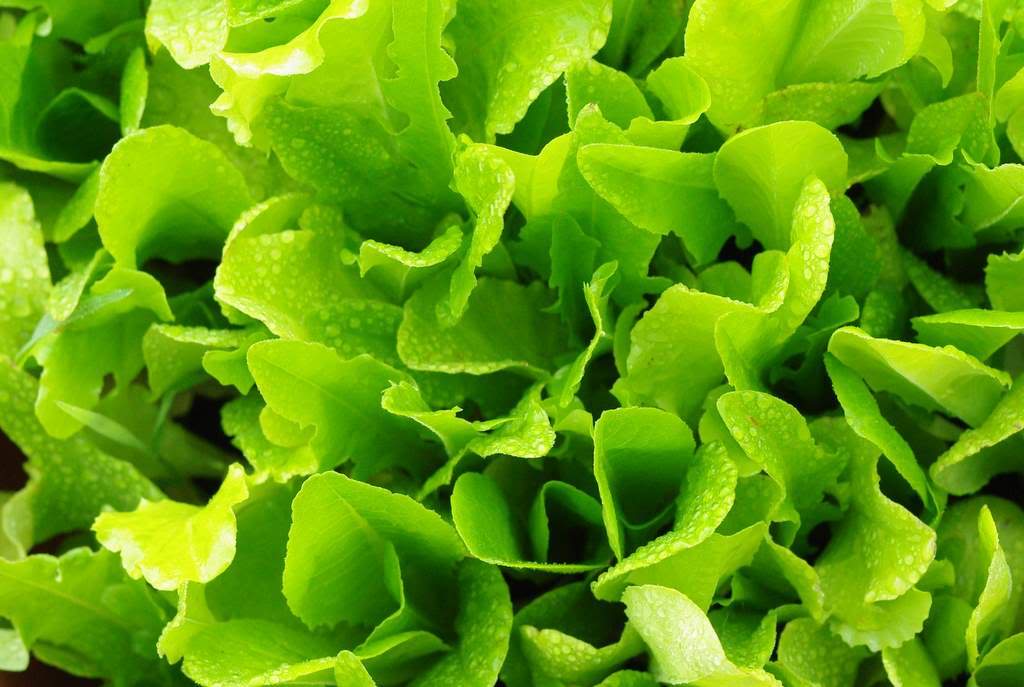


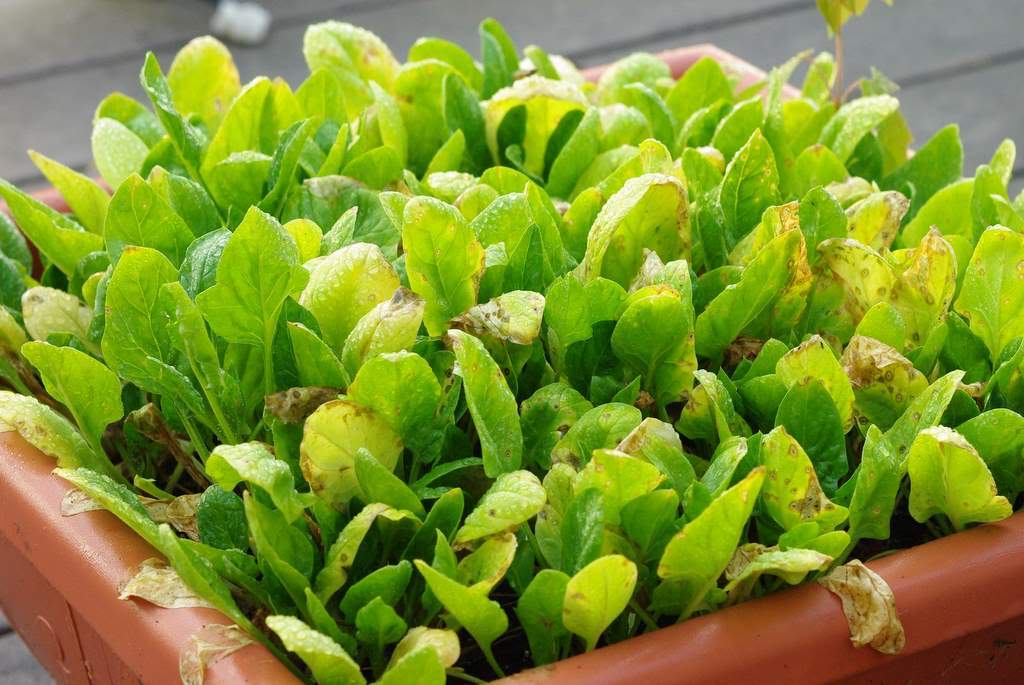
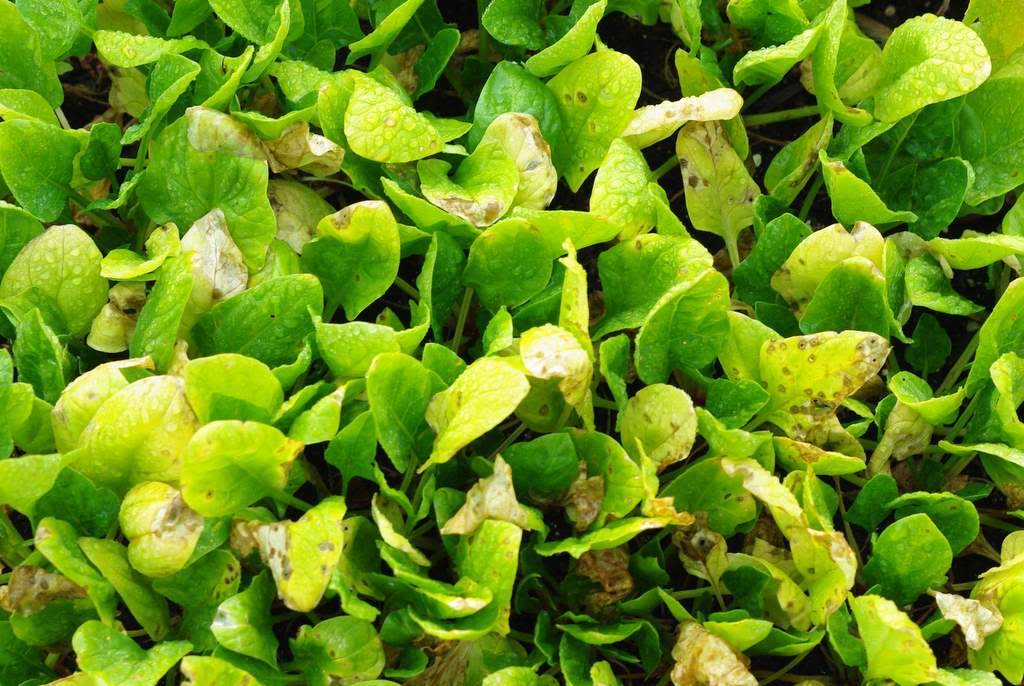
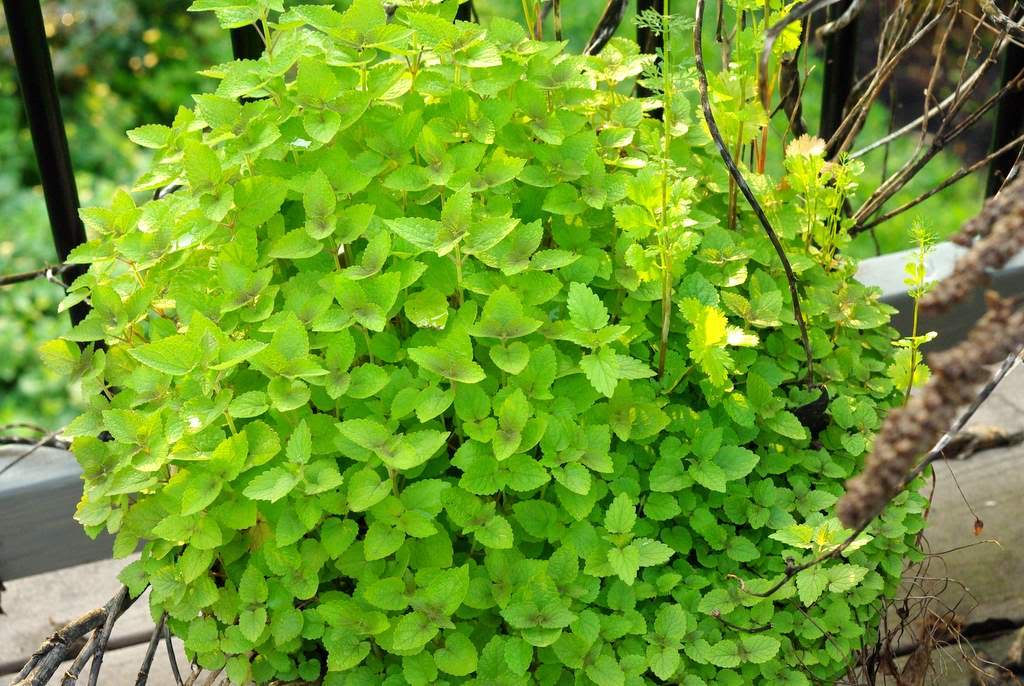

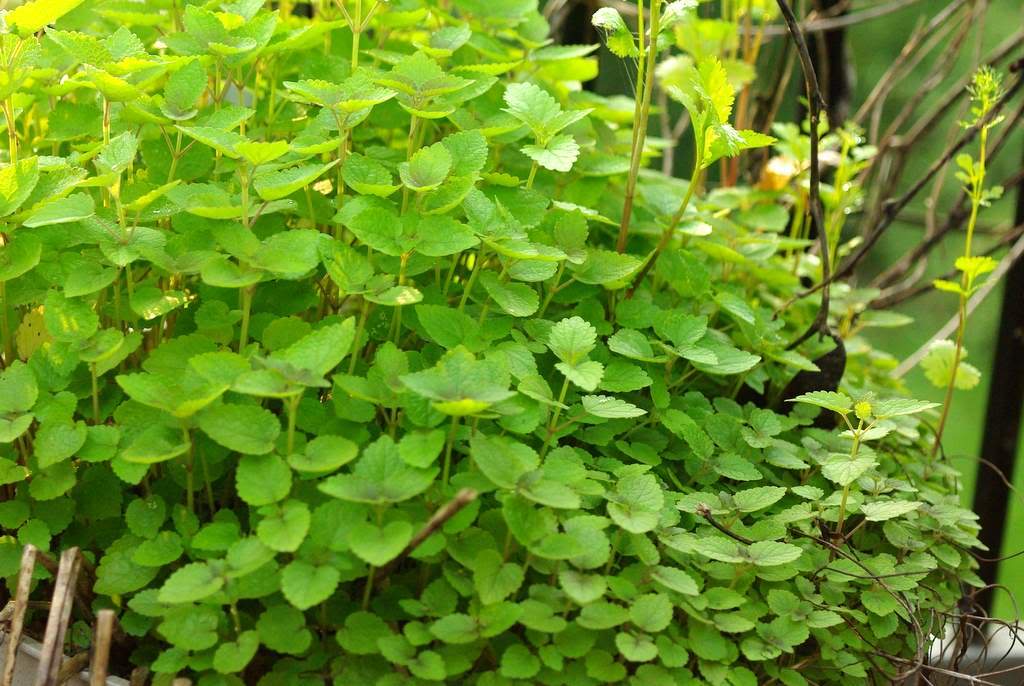
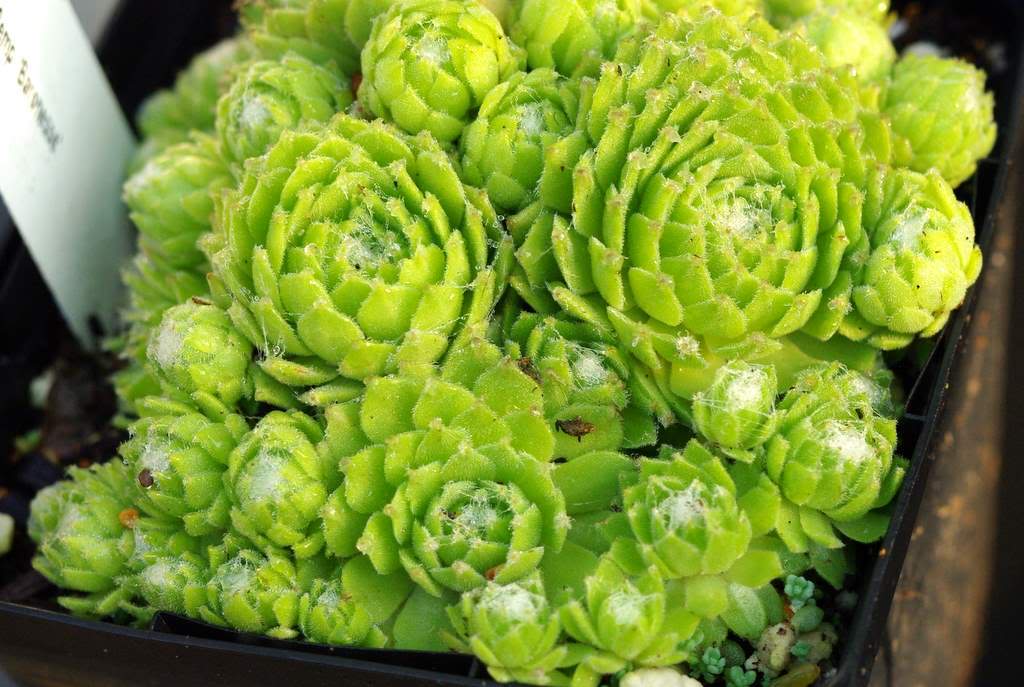
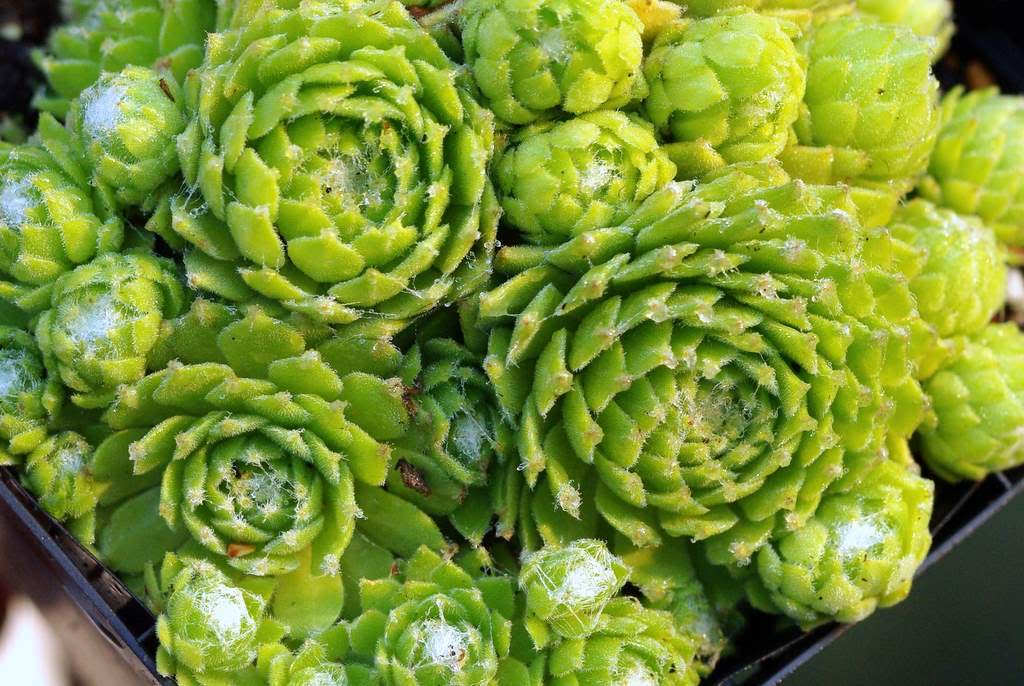
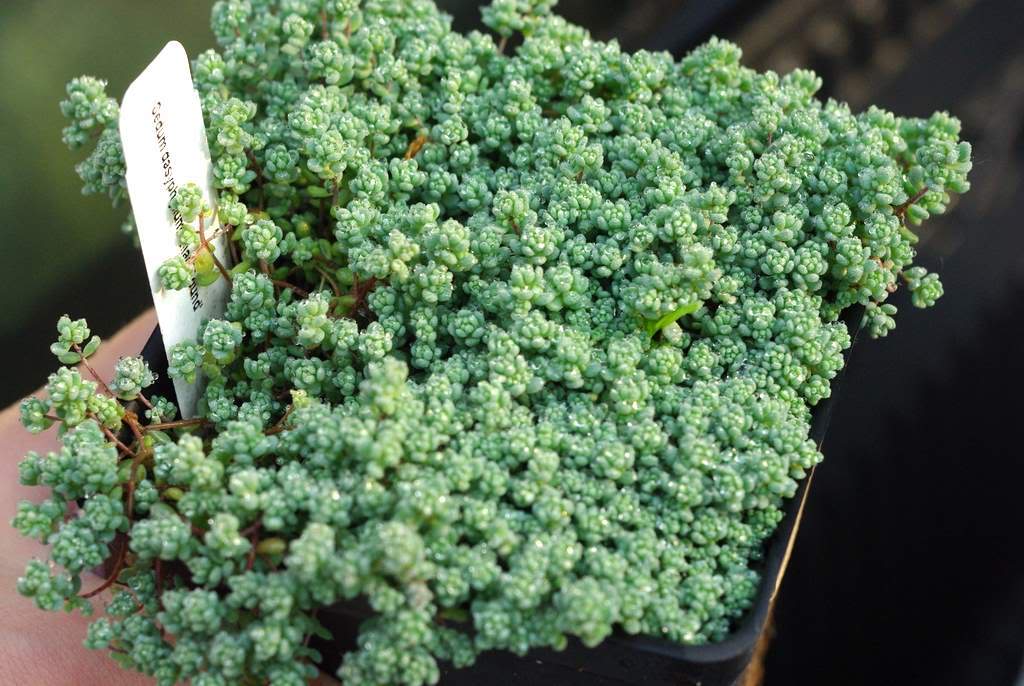
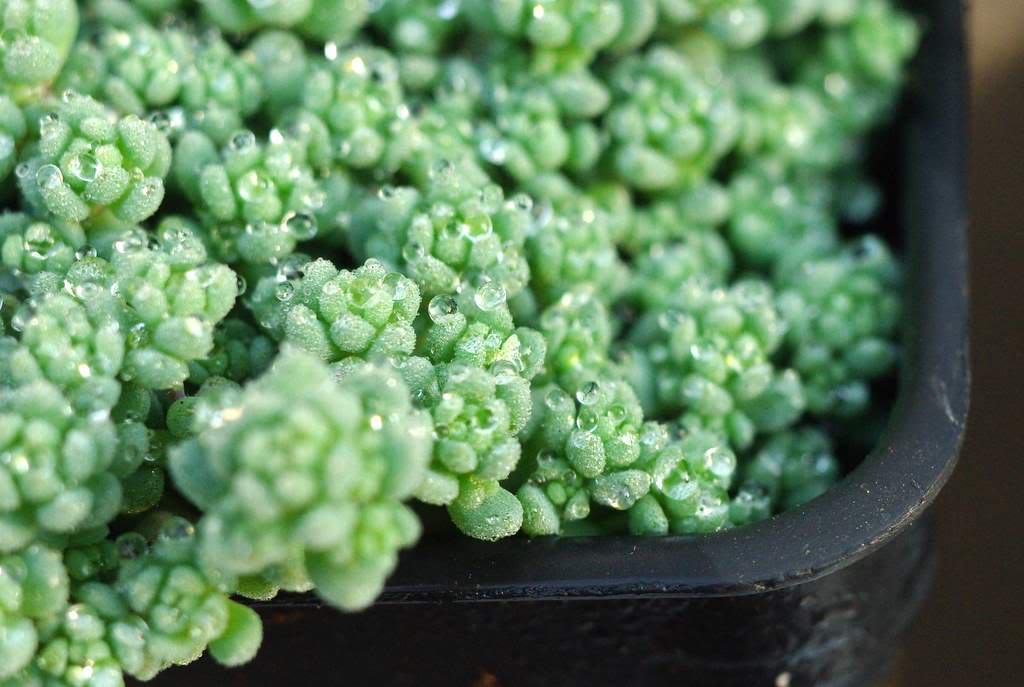
I'm not surprised with the sempervivum. I have a cobweb type that has put out over 20 chicks which is pretty impressive for a 2 1/2 inch hen, but the chicks are not growing that fast since so many are being generated, and I'll have to move them a few inches away so the plant has growing room.
ReplyDeleteAhhh... now I understand why my cos lettuce tastes awful! I planted them very close together (looks a lot like your photo). My butter lettuce, on the other hand, tastes divine, those were spaced properly, but I had no idea why one was good and one not. I learn from you all the time! Is it ok to just thin them out now or do I need to start from scratch again?
ReplyDeleteChristine: As far as I know once lettuce or other greens are bitter, they stay bitter. You might be able to thin them out then remove most of the outer leaves of the remaining plants. Then see if the newer leaves taste any better.
ReplyDeleteI'm thinking you'll have to start over though.
I would definitely thin out the agastache! You'll have much healthier, happier plants. Plus, you'll end up with seedlings you can plant other places. Cool sedums!
ReplyDeleteCasa: I know, but I don't want healthy, happy plants in this pot. I have dozens of pots of this agastache already, so I want to see what happens if I don't thin it.
ReplyDelete